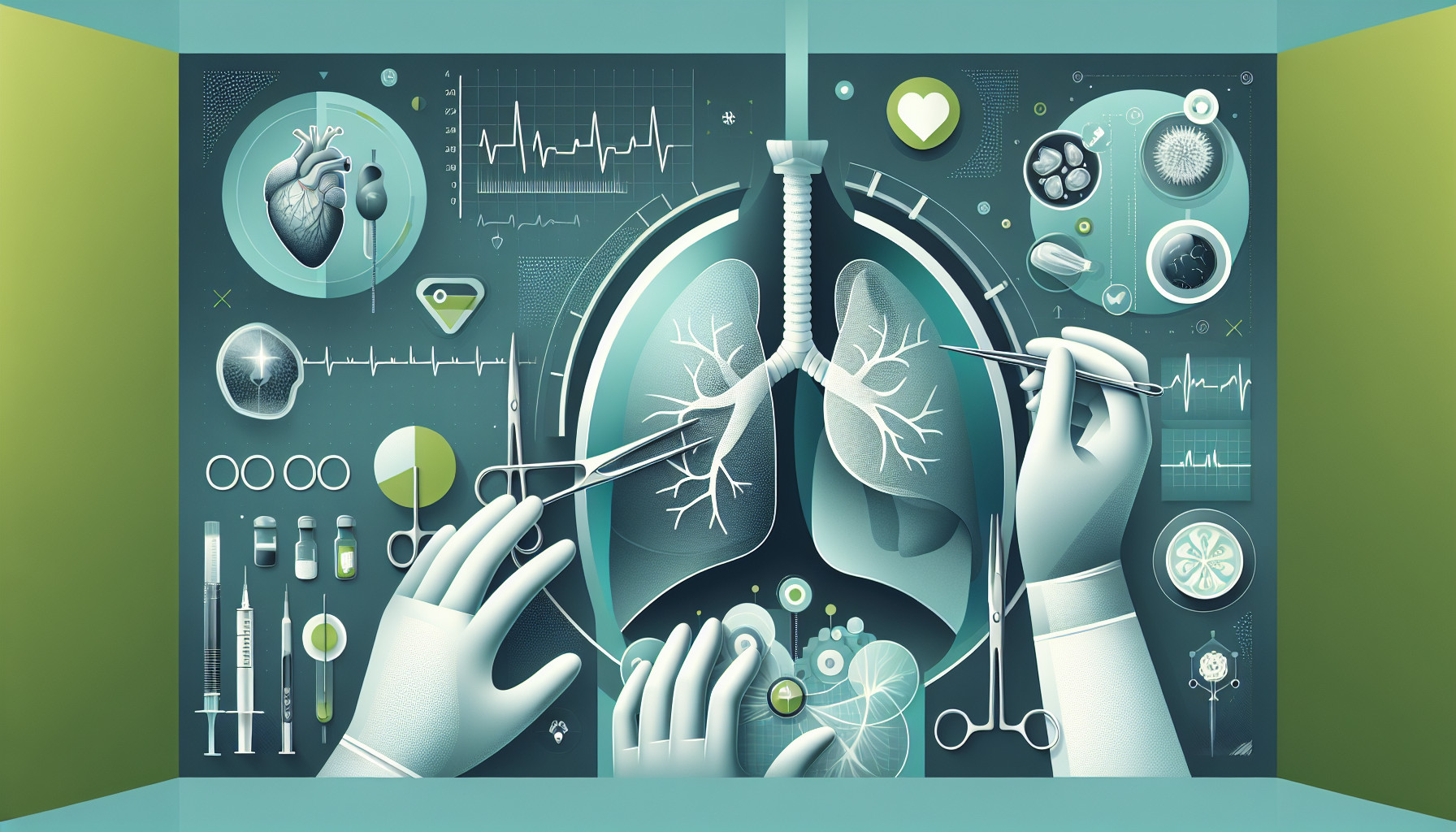Our Summary
This research paper discusses lung transplantation, which is often the only solution for patients with severe lung disease. The number of lung transplants has grown significantly, but not as quickly as other types of organ transplants. This is because lung transplants are more complex and require ongoing improvements in surgery, anesthesia, and critical care. They also require adjustments in how we prevent the body from rejecting the new lung and prevent infection, as well as how we manage organ donors and choose patients for transplants. However, the future of lung transplants seems promising with advancements such as more available donors, better patient outcomes, new drugs to prevent organ rejection, and the potential use of animal organs or artificial lungs.
FAQs
- Why was the development of lung transplantation slower compared to other solid-organ transplants?
- What factors contribute to the complexity of lung transplantation?
- What advancements are anticipated for the future of lung transplantation?
Doctor’s Tip
A doctor might tell a patient considering a lung transplant to make sure they fully understand the risks and benefits of the procedure, as well as the potential long-term implications. They may also advise the patient to follow a healthy lifestyle, including quitting smoking and maintaining a healthy weight, to optimize their chances of a successful transplant and recovery. It is important for the patient to closely follow their doctor’s recommendations for medications and follow-up appointments post-transplant to ensure the best possible outcome.
Suitable For
Patients who are typically recommended for lung transplant are those with end-stage lung disease who have exhausted all other treatment options and have a poor prognosis without a transplant. Common conditions that may warrant a lung transplant include cystic fibrosis, chronic obstructive pulmonary disease (COPD), idiopathic pulmonary fibrosis, pulmonary hypertension, and bronchiectasis, among others. Patients must also meet certain criteria for lung transplant eligibility, including being physically fit enough to undergo surgery and comply with post-transplant care, having a support system in place, and not having any other serious medical conditions that would affect transplant outcomes. The decision to recommend a lung transplant is made by a multidisciplinary team of healthcare providers, including pulmonologists, transplant surgeons, social workers, and psychologists.
Timeline
Before lung transplant:
- Patient is diagnosed with end-stage lung disease and undergoes evaluation to determine if they are a candidate for lung transplant
- Patient is placed on the waiting list for a donor organ
- Patient undergoes extensive pre-transplant testing and evaluation to assess their overall health and suitability for transplant surgery
- Patient waits for a suitable donor organ to become available
- Patient undergoes the lung transplant surgery, which can involve either a single or double lung transplant
After lung transplant:
- Patient is closely monitored in the intensive care unit immediately following the surgery
- Patient begins a regimen of immunosuppressive medications to prevent rejection of the transplanted lung(s)
- Patient undergoes regular follow-up appointments with their transplant team to monitor their progress and adjust medications as needed
- Patient undergoes pulmonary rehabilitation to regain strength and function in their new lungs
- Patient must adhere to strict lifestyle changes, such as avoiding smoking and maintaining a healthy diet and exercise routine
- Patient faces the risk of complications such as infection, rejection, and organ failure, and may require additional medical interventions in the future.
What to Ask Your Doctor
- What are the risks and benefits of lung transplant surgery for my specific condition?
- How long is the recovery process after a lung transplant?
- What kind of follow-up care will I need after the transplant surgery?
- What lifestyle changes will I need to make after a lung transplant?
- What are the potential complications or side effects of the immunosuppressant medications I will need to take after the transplant?
- How long can I expect the transplanted lung(s) to last?
- What is the success rate of lung transplants for patients with my specific condition?
- How will I be matched with a donor lung?
- What is the process for being placed on the lung transplant waiting list?
- Are there any alternative treatments or therapies that I should consider before pursuing a lung transplant?
Reference
Authors: Chang SH, Chan J, Patterson GA. Journal: Clin Chest Med. 2023 Mar;44(1):1-13. doi: 10.1016/j.ccm.2022.11.004. PMID: 36774157
